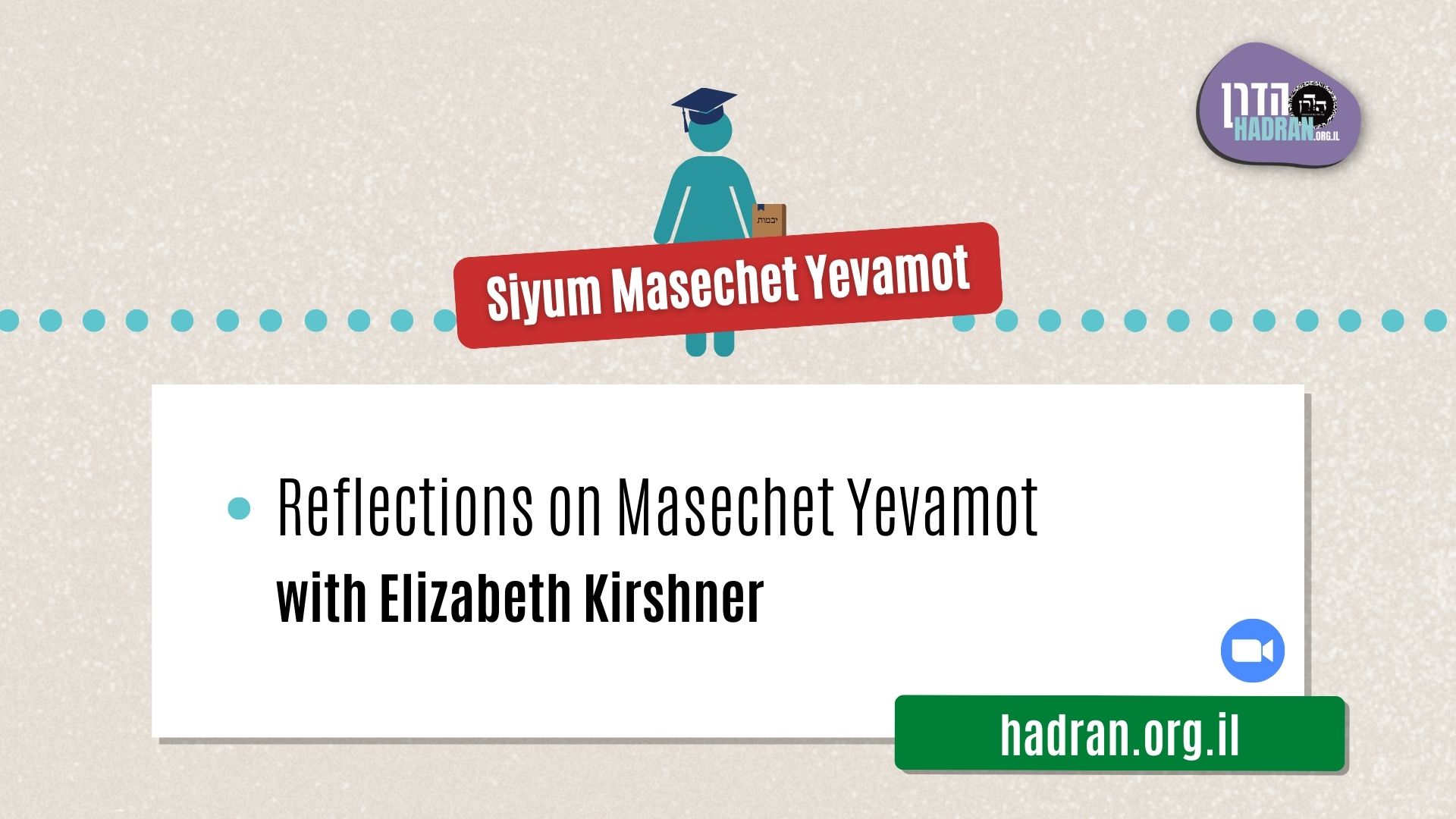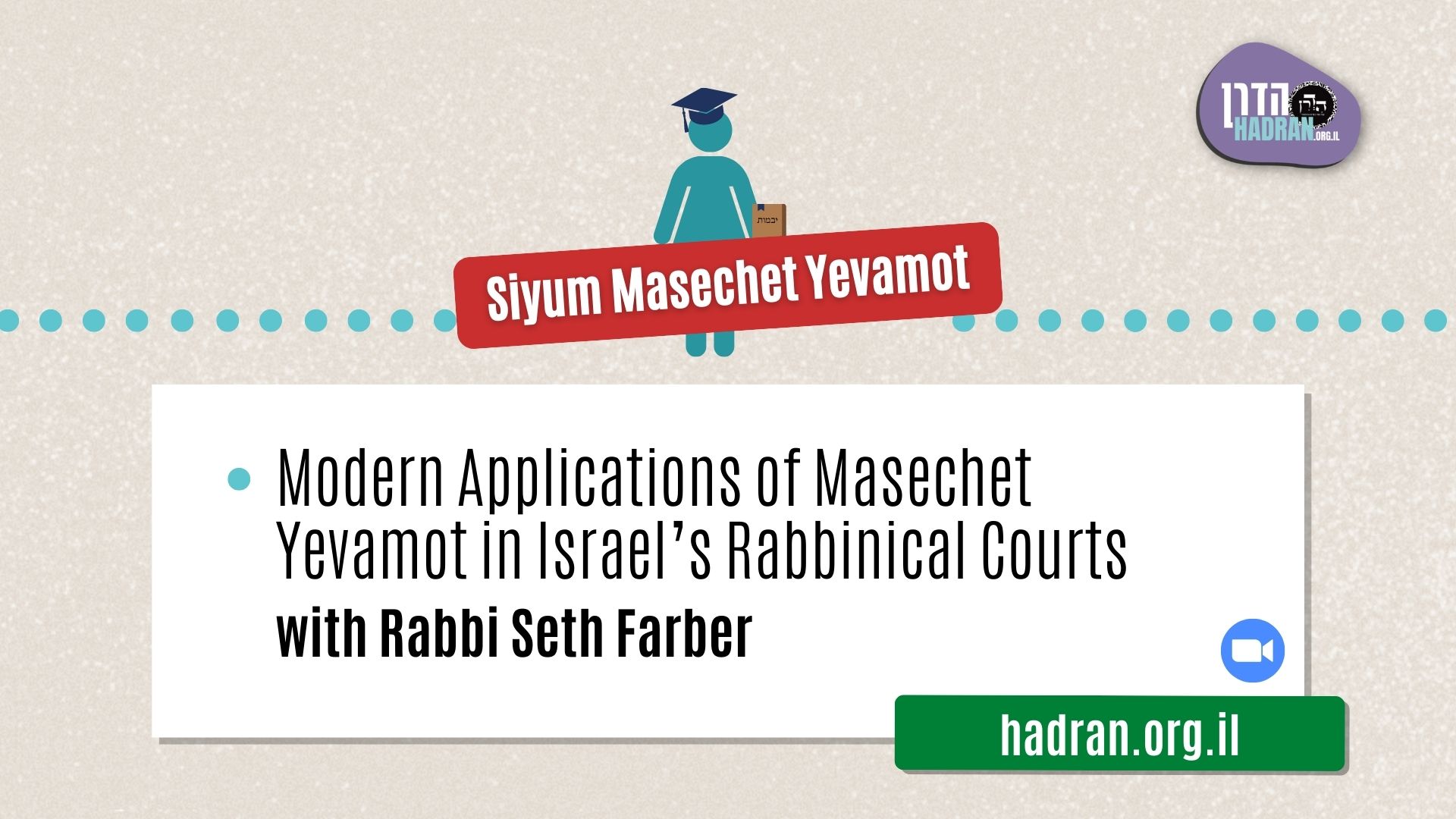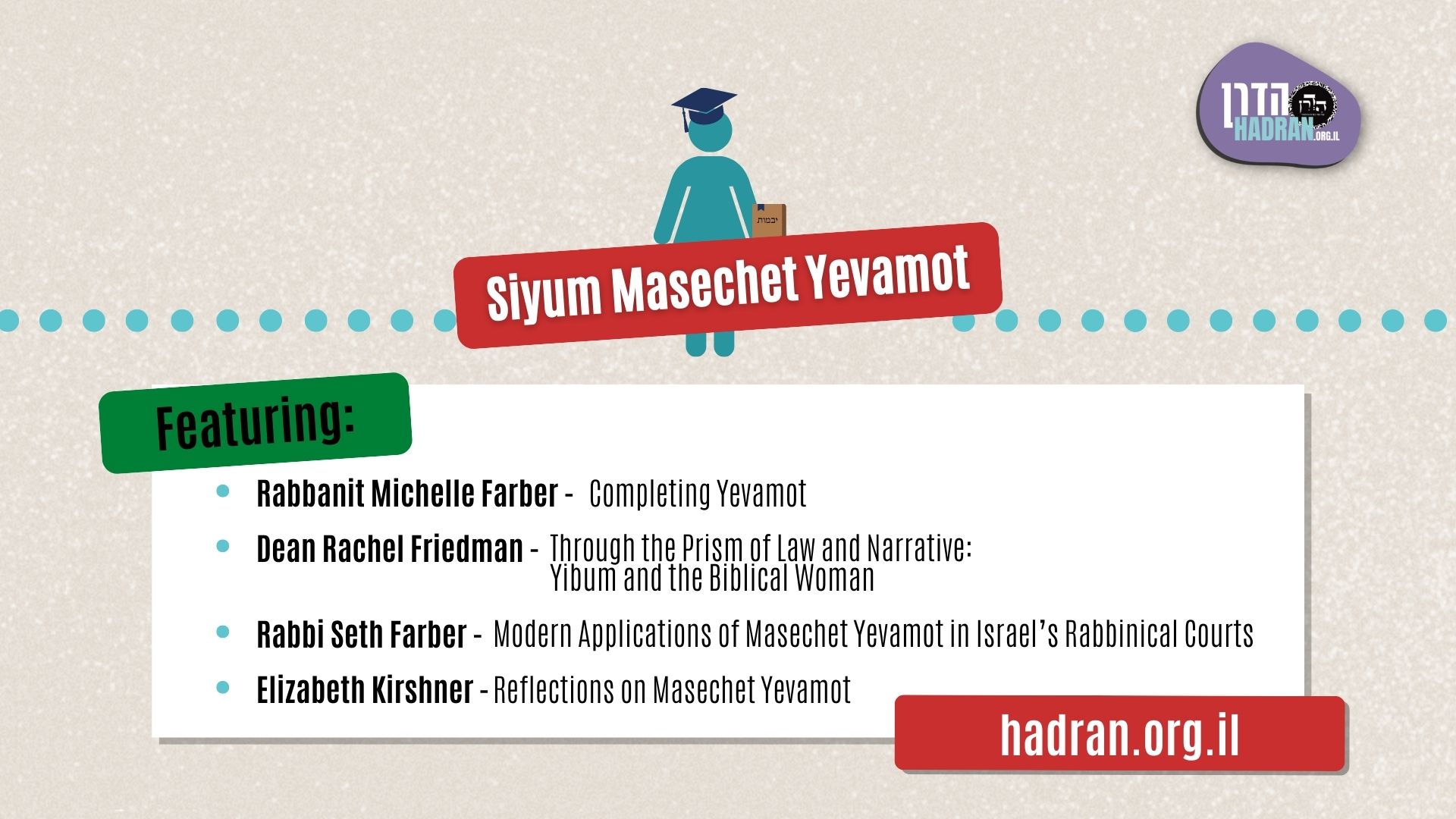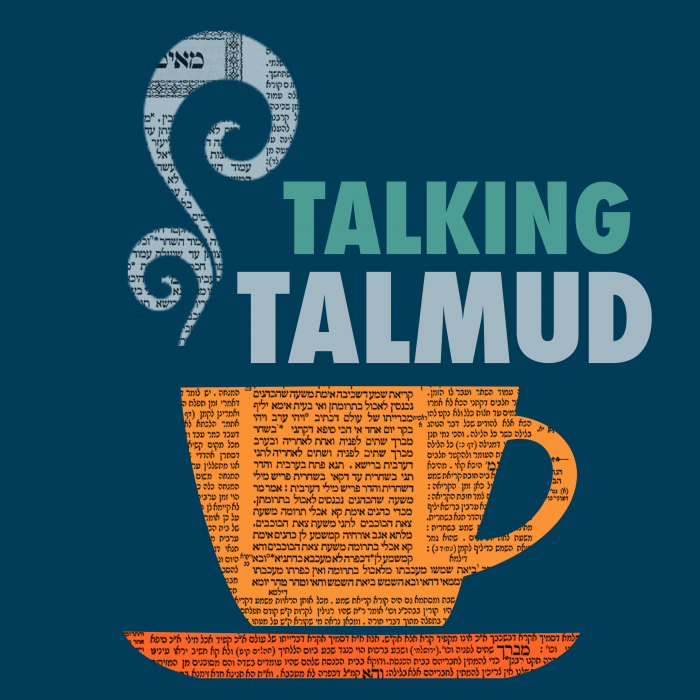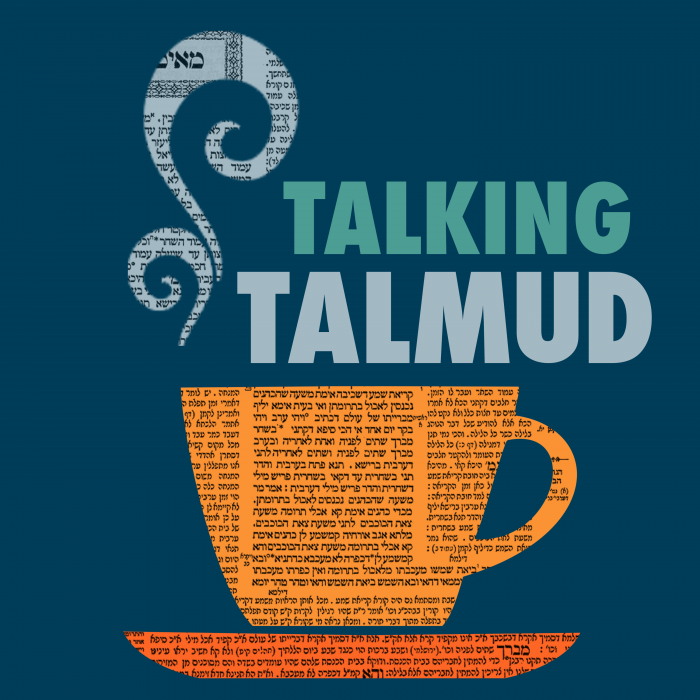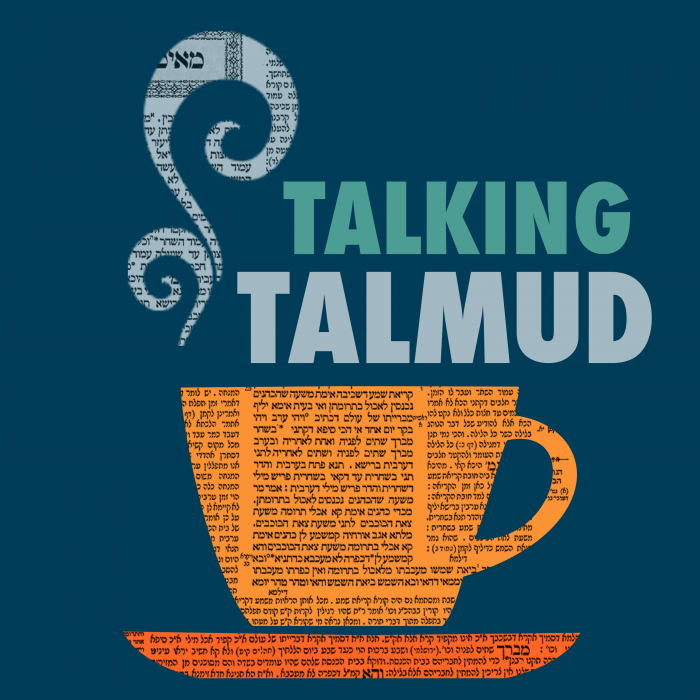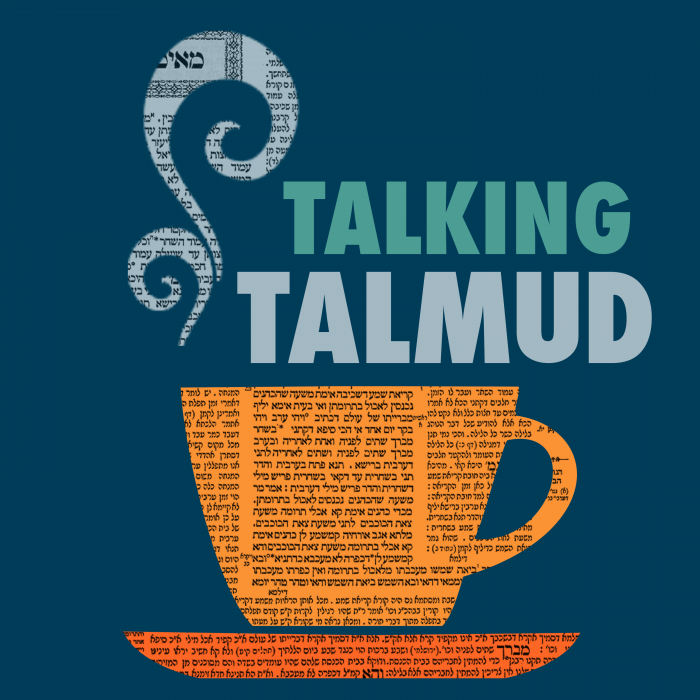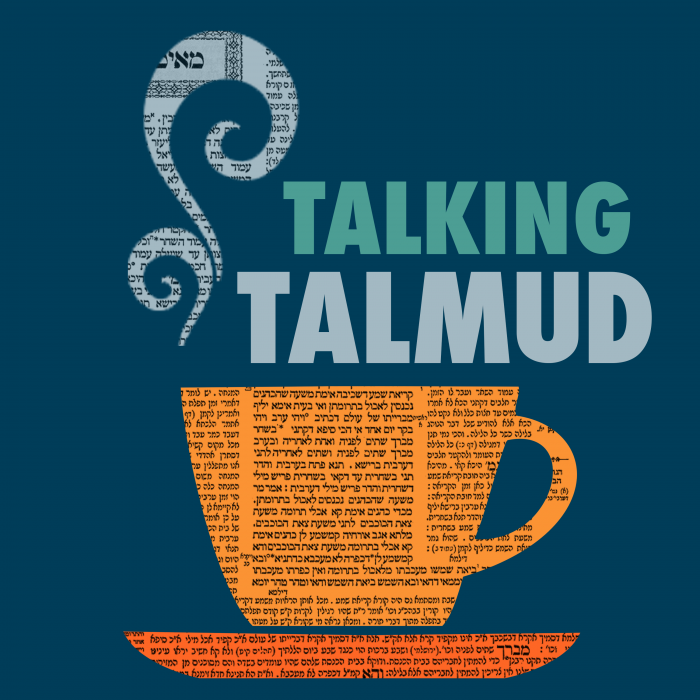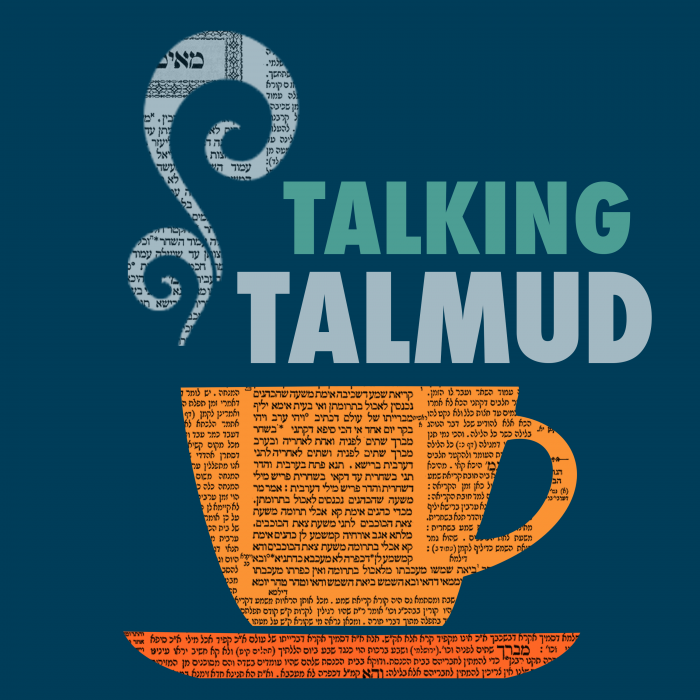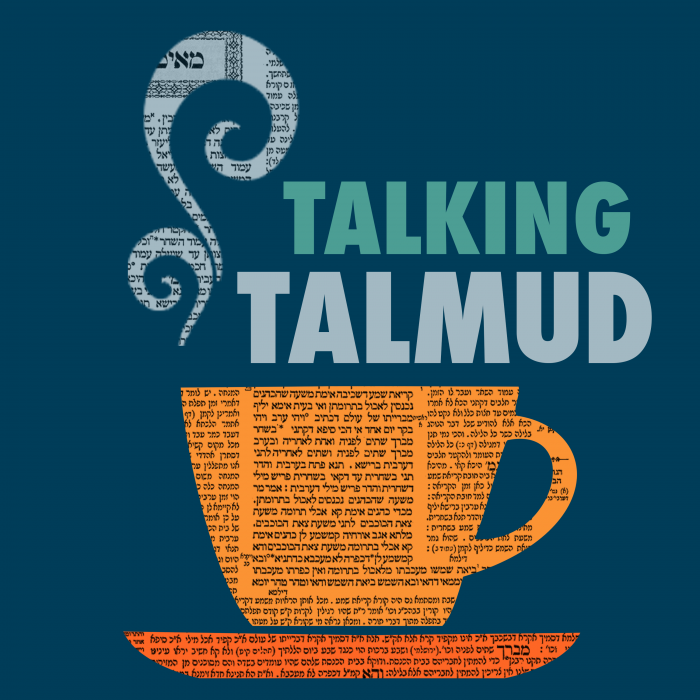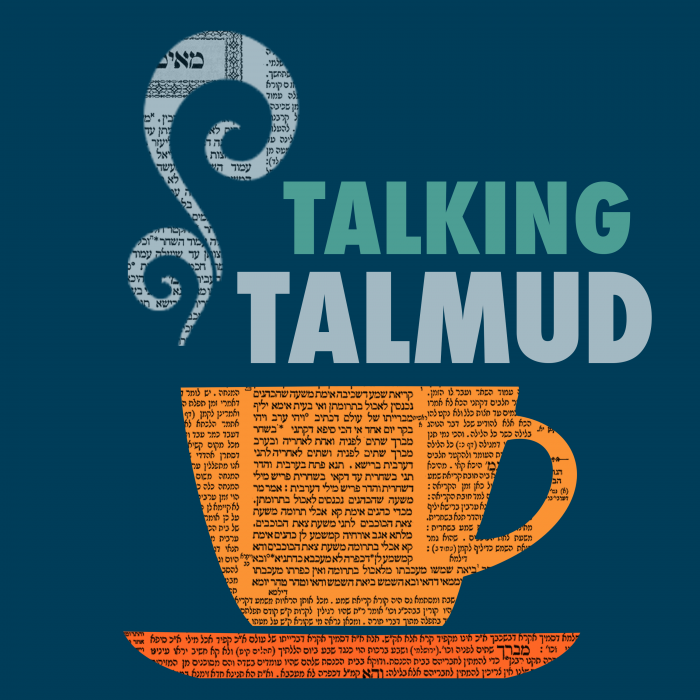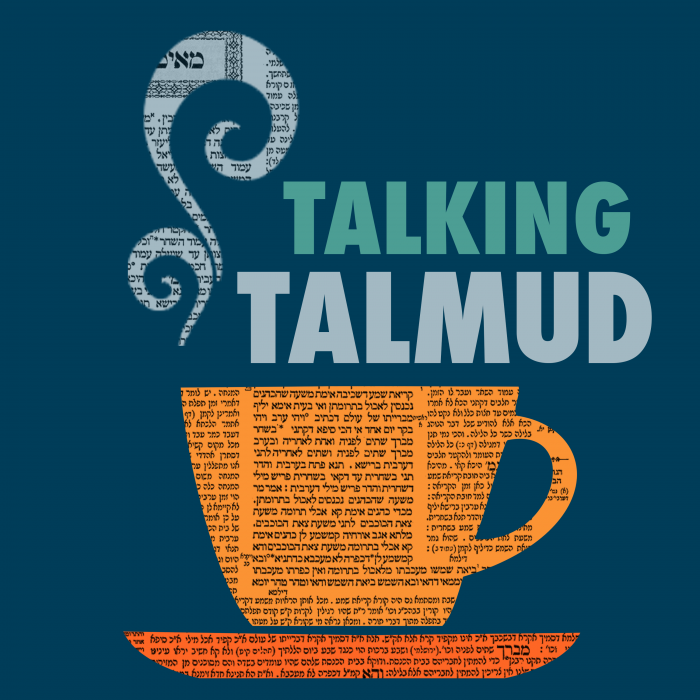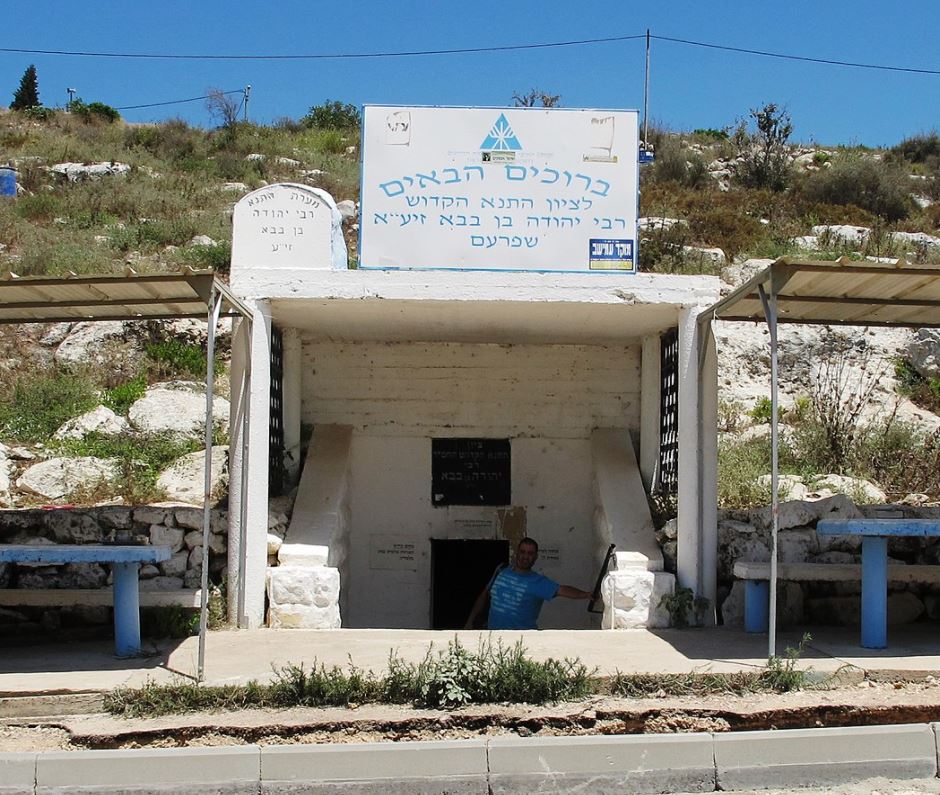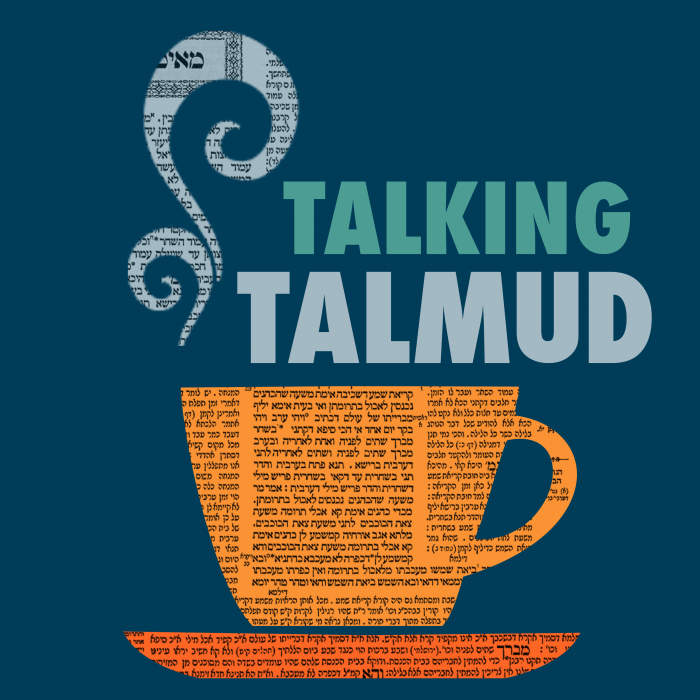Yevamot 97
שֶׁיֹּאמְרוּ דְּבַר שְׁמוּעָה מִפִּי בָּעוֹלָם הַזֶּה. דְּאָמַר רַבִּי יוֹחָנָן מִשּׁוּם רַבִּי שִׁמְעוֹן בֶּן יוֹחַי: כׇּל תַּלְמִיד חָכָם שֶׁאוֹמְרִים דְּבַר שְׁמוּעָה מִפִּיו בָּעוֹלָם הַזֶּה, שִׂפְתוֹתָיו דּוֹבְבוֹת בַּקֶּבֶר. אָמַר רַבִּי יִצְחָק בֶּן זְעֵירָא, וְאִיתֵּימָא שִׁמְעוֹן נְזִירָא: מַאי קְרָאָה — ״וְחִכֵּךְ כְּיֵין הַטּוֹב הוֹלֵךְ לְדוֹדִי לְמֵישָׁרִים דּוֹבֵב שִׂפְתֵי יְשֵׁנִים״.
that they will say a matter of halakha in my name in this world when I have passed on to another world. As Rabbi Yoḥanan said in the name of Rabbi Shimon ben Yoḥai: With regard to any Torah scholar in whose name a matter of halakha is said in this world, his lips mouth the words in the grave, as though he is talking. Rabbi Yitzḥak ben Ze’eira said, and some say this was stated by Shimon the Nazirite: What is the verse from which it is derived? “And the roof of your mouth is like the best wine that glides down smoothly for my beloved, moving gently the lips of those who are asleep” (Song of Songs 7:10).
כְּכוֹמֶר שֶׁל עֲנָבִים: מָה כּוֹמֶר שֶׁל עֲנָבִים, כֵּיוָן שֶׁמַּנִּיחַ אָדָם אֶצְבָּעוֹ עָלָיו — מִיָּד דּוֹבֵב; אַף תַּלְמִידֵי חֲכָמִים, כֵּיוָן שֶׁאוֹמְרִים דְּבַר שְׁמוּעָה מִפִּיהֶם בָּעוֹלָם הַזֶּה — שִׂפְתוֹתֵיהֶם דּוֹבְבוֹת בַּקֶּבֶר.
He explains: This is like a pile [komer] of grapes left to warm before they are pressed: Just as in the case of a pile of grapes, when a person places his finger on it, immediately it moves, as the wine bursts through and the whole pile shakes, so too with Torah scholars: When a teaching is said in their name in this world their lips mouth the words in the grave. For this reason Rabbi Yoḥanan wanted his Torah statements to be attributed to him, so that he would earn eternal life.
אֶחָד בֶּן תֵּשַׁע שָׁנִים וְכוּ׳. וּרְמִינְהוּ: בֶּן עֶשְׂרִים שָׁנָה שֶׁלֹּא הֵבִיא שְׁתֵּי שְׂעָרוֹת — יָבִיאוּ רְאָיָה שֶׁהוּא בֶּן עֶשְׂרִים, וְהוּא הַסָּרִיס — לֹא חוֹלֵץ וְלֹא מְיַיבֵּם.
§ The Gemara addresses the statement of the mishna that this is the halakha both for a boy who is nine years and one day old as well as a twenty-year old who has not developed two pubic hairs. In both cases, their sexual relations are not considered proper intercourse with regard to levirate marriage. And the Gemara raises a contradiction against this from the following source: With regard to a man twenty years old who has not developed two pubic hairs, they must bring proof that he is twenty years old, and he is established as a eunuch, who may neither perform ḥalitza nor perform levirate marriage.
בַּת עֶשְׂרִים שָׁנָה שֶׁלֹּא הֵבִיאָה שְׁתֵּי שְׂעָרוֹת — יָבִיאוּ רְאָיָה שֶׁהִיא בַּת עֶשְׂרִים, וְהִיא הָאַיְלוֹנִית — לֹא חוֹלֶצֶת וְלֹא מִתְיַיבֶּמֶת.
Likewise, in the case of a woman who is twenty years old and has not developed two pubic hairs, they must bring proof that she is twenty years old, and that she is a sexually underdeveloped woman, who may neither perform ḥalitza nor enter into levirate marriage. This shows that the status of a nine-year-old male and a twenty-year old man without pubic hairs are not the same, as the intercourse of a nine-year-old is considered of some significance, whereas that of a eunuch is entirely disregarded, as he may not even perform ḥalitza.
הָא אִתְּמַר עֲלַהּ, אָמַר רַב שְׁמוּאֵל בַּר יִצְחָק אָמַר רַב: וְהוּא שֶׁנּוֹלְדוּ לוֹ סִימָנֵי סָרִיס. אָמַר רָבָא: דַּיְקָא נָמֵי, דְּקָתָנֵי: וְהוּא הַסָּרִיס. שְׁמַע מִינַּהּ.
The Gemara answers: Wasn’t it stated with regard to this baraita that Rav Shmuel bar Yitzḥak said that Rav said: And this halakha applies only if he developed other signs of a eunuch by the age of twenty. The mishna, by contrast, is referring to one who merely showed the signs of maturity at a late age. Rava said: The language of the baraita is also precise, as it teaches: And he is the eunuch. One can learn from here that this is referring to one who is definitely a eunuch.
וְכִי לֹא נוֹלְדוּ לוֹ סִימָנֵי סָרִיס, עַד כַּמָּה? תָּנֵי דְּבֵי רַבִּי חִיָּיא: עַד רוֹב שְׁנוֹתָיו.
The Gemara asks a question with regard to the halakha itself: And in a case where he does not develop the signs of a eunuch, until what age is he considered a minor? The school of Rabbi Ḥiyya taught: Until most of his years have passed, i.e., until he reaches the age of thirty-five, i.e., halfway to seventy, the standard length of a man’s life.
כִּי אֲתוֹ לְקַמֵּיהּ דְּרָבָא, אִי כָּחוּשׁ אֲמַר לְהוּ: זִילוּ אַבְרְיוּהּ. וְאִי בָּרִיא אֲמַר לְהוּ: זִילוּ אַכְחֲשׁוּהּ. דְּהָנֵי סִימָנִין, זִמְנִין דְּנָתְרִי מֵחֲמַת כְּחִישׁוּתָא, וְזִמְנִין דְּנָתְרִי מֵחֲמַת בְּרִיּוּתָא.
On the same issue, the Gemara relates: When they would come before Rava to inquire about someone who had reached the age of maturity but had not yet developed the physical signs, if the person in question was thin, he would say to them: Go and fatten him up before we decide on his status. And if he was fat, he would say to them: Go and make him thin. As these signs, the pubic hairs of maturity, sometimes they fall off due to thinness and sometimes they fall off due to fatness. It is therefore possible that after his bodily shape is adjusted he will develop the signs of maturity and will not have the status of a eunuch.
הֲדַרַן עֲלָךְ הָאִשָּׁה רַבָּה
נוֹשְׂאִין עַל הָאֲנוּסָה וְעַל הַמְפוּתָּה, הָאוֹנֵס וְהַמְפַתֶּה עַל הַנְּשׂוּאָה — חַיָּיב. נוֹשֵׂא אָדָם אֲנוּסַת אָבִיו וּמְפוּתַּת אָבִיו, אֲנוּסַת בְּנוֹ וּמְפוּתַּת בְּנוֹ. רַבִּי יְהוּדָה אוֹסֵר בַּאֲנוּסַת אָבִיו וּמְפוּתַּת אָבִיו.
MISHNA: One may marry a relative, e.g., the sister or the mother, of the woman he raped and of the woman he seduced. However, one who rapes and one who seduces a relative of the woman who is married to him is liable to receive capital punishment or karet for engaging in prohibited sexual intercourse, depending on the particular family relationship. A man may marry a woman raped by his father, or a woman seduced by his father, or a woman raped by his son, or a woman seduced by his son. Rabbi Yehuda prohibits marriage in the case of a woman raped by his father or a woman seduced by his father.
גְּמָ׳ תְּנֵינָא לְהָא דְּתָנוּ רַבָּנַן: אָנַס אִשָּׁה — מוּתָּר לִישָּׂא בִּתָּהּ, נָשָׂא אִשָּׁה — אָסוּר לִישָּׂא בִּתָּהּ. וּרְמִינְהוּ: הַנִּטְעָן מִן הָאִשָּׁה — אָסוּר בְּאִמָּהּ וּבְבִתָּהּ וּבַאֲחוֹתָהּ! מִדְּרַבָּנַן.
GEMARA: We learned in the mishna that which the Sages teach in a baraita: If a man raped a woman, he is permitted to marry her daughter. If he married a woman, it is prohibited for him to marry her daughter. However, the Gemara raises a contradiction from another baraita: One who is alleged to have engaged in intercourse with a particular woman is prohibited from marriage with her mother, and with her daughter, and with her sister. Apparently, as a consequence of non-marital intercourse, there is a prohibition against the man marrying the woman’s relatives. The Gemara answers: This is merely prohibited by rabbinic decree, lest the man continue to engage in intercourse with this particular woman after marrying one of her relatives, thereby transgressing a Torah prohibition.
וְכֹל הֵיכָא דְּאִיכָּא אִיסּוּרָא מִדְּרַבָּנַן תָּנֵי נוֹשְׂאִין לְכַתְּחִלָּה?! כִּי תְּנַן מַתְנִיתִין — לְאַחַר מִיתָה.
The Gemara asks: And anywhere that there is a rabbinic prohibition, does the mishna teach that one may marry the woman ab initio? Since the marriage is prohibited by rabbinic decree, the mishna should have taught that if he marries her, he is exempt from punishment. The Gemara answers: When we learned in the mishna that he may marry her ab initio, it was dealing with their marriage after the death of the woman that he raped or seduced. The rabbinic prohibition does not relate to this case, as concern with regard to forbidden relatives is not relevant there.
מְנָא הָנֵי מִילֵּי? דְּתָנוּ רַבָּנַן: בְּכוּלָּן נֶאֱמַר שְׁכִיבָה, וְכָאן נֶאֱמַר קִיחָה, לוֹמַר לְךָ: דֶּרֶךְ לִיקּוּחִין אָסְרָה תּוֹרָה.
The Gemara asks: With regard to the mishna’s ruling, from where are these matters derived? It is as the Sages taught: With regard to all other prohibited sexual relations, lying is stated, whereas here, with regard to a man’s intercourse with his wife’s relatives, taking is stated. This is to tell you that the Torah prohibited intercourse with these relatives only through taking, i.e., the man’s acquisition of his wife through marriage. It did not prohibit intercourse with the relative of a woman with whom he engaged in nonmarital relations.
אֲמַר לֵיהּ רַב פָּפָּא לְאַבָּיֵי: אֶלָּא מֵעַתָּה, גַּבֵּי אֲחוֹתוֹ דִּכְתִיב: ״אִישׁ אֲשֶׁר יִקַּח אֶת אֲחוֹתוֹ בַּת אָבִיו אוֹ בַת אִמּוֹ״, הָכִי נָמֵי דֶּרֶךְ קִיחָה הוּא דַּאֲסִיר, דֶּרֶךְ שְׁכִיבָה שְׁרֵי?!
Rav Pappa said to Abaye: However, if that interpretation is so, then with regard to intercourse with one’s sister, concerning whom it is written: “And if a man takes his sister, his father’s daughter, or his mother’s daughter” (Leviticus 20:17), you must also say that is it is only intercourse through taking, i.e., marriage, that is prohibited. But intercourse through lying, i.e., without marriage, is permitted. How can this be?
אֲמַר לֵיהּ: לִיקּוּחִין כְּתִיבִי בַּתּוֹרָה סְתָם. הָרָאוּי לְקִיחָה — קִיחָה, הָרָאוּי לִשְׁכִיבָה — שְׁכִיבָה.
Abaye said to Rav Pappa: When the term taking is stated in the Torah without specification, it is interpreted in accordance with the context. With regard to the context of a relationship that has potential for taking through marriage, this verb is interpreted as taking through marriage. In the context of a relationship that has potential only for lying, as their marriage would be invalid, taking the woman is understood to mean lying with her.
רָבָא אָמַר: אָנַס אִשָּׁה — מוּתָּר לִישָּׂא בִּתָּהּ מֵהָכָא, כְּתִיב: ״עֶרְוַת בַּת בִּנְךָ אוֹ בַת בִּתְּךָ לֹא תְגַלֶּה״, הָא בַּת בְּנָהּ דִּידַהּ, וּבַת בִּתָּהּ דִּידַהּ — גַּלִּי,
Rava said: The halakha that if a man raped a woman it is permitted for him to marry her daughter is derived from here. It is stated: “The nakedness of your son’s daughter, or of your daughter’s daughter, even their nakedness…you may not uncover” (Leviticus 18:10). It may be inferred from here that the daughter of the woman’s own son from a different relationship, and the daughter of her own daughter, may be uncovered, i.e., intercourse with them is not prohibited.
וּכְתִיב: ״עֶרְוַת אִשָּׁה וּבִתָּהּ לֹא תְגַלֵּה אֶת בַּת בְּנָהּ וְאֶת בַּת בִּתָּהּ לֹא תִקַּח״, הָא כֵּיצַד? כָּאן בָּאוֹנָסִין, כָּאן בְּנִשּׂוּאִין.
And it is also written: “You may not uncover the nakedness of a woman and her daughter; you may not take her son’s daughter, or her daughter’s daughter, to uncover her nakedness; they are near kinswomen, it is lewdness” (Leviticus 18:17). How so? How can the two verses be reconciled? Evidently, the former verse is stated with regard to rape. A man may marry the daughter or granddaughter of the woman he raped, provided they are not his own offspring. The latter verse is stated with regard to marriage. Marrying the relatives of one’s wife is prohibited.
אֵיפוֹךְ אֲנָא? עֲרָיוֹת ״שְׁאֵר״ כְּתִיב בְּהוּ. בְּנִשּׂוּאִין אִיכָּא שְׁאֵר, בָּאוֹנָסִין לֵיכָּא שְׁאֵר.
The Gemara asks: Perhaps I should reverse the resolution of the contradiction between the verses and state that the daughter or granddaughter of his rape victim is forbidden, whereas the relatives of his wife are permitted. The Gemara answers: With regard to those with whom intercourse is forbidden, the concept of kinship is stated (see Leviticus 18:13, 17). In marriage there is kinship, whereas in the case of rape there is no kinship. Therefore, the prohibition against intercourse with a woman and her daughter or granddaughter is clearly referring to the daughter and granddaughter of one’s wife and not of the woman he raped.
רַבִּי יְהוּדָה אוֹסֵר בַּאֲנוּסַת אָבִיו וְכוּ׳. אָמַר רַב גִּידֵּל אָמַר רַב: מַאי טַעְמָא דְּרַבִּי יְהוּדָה, דִּכְתִיב: ״לֹא יִקַּח אִישׁ אֶת אֵשֶׁת אָבִיו וְלֹא יְגַלֶּה כְּנַף אָבִיו״, כָּנָף שֶׁרָאָה אָבִיו לֹא יְגַלֶּה.
§ It is taught in the mishna that Rabbi Yehuda prohibits marrying a woman raped by his father or a woman seduced by his father. Rav Giddel said that Rav said: What is the reasoning for the ruling of Rabbi Yehuda? It is as it is written: “A man may not take his father’s wife, and may not uncover his father’s skirt” (Deuteronomy 23:1), meaning that one may not uncover the skirt that his father has seen.
וּמִמַּאי דְּבַאֲנוּסָה כְּתִיב — דִּכְתִיב מֵעִילָּוֵיהּ דִּקְרָא: ״וְנָתַן הָאִישׁ הַשּׁוֹכֵב עִמָּהּ לַאֲבִי הַנַּעֲרָה חֲמִשִּׁים כָּסֶף״.
And from where is it apparent that this verse is written with regard to a woman raped by his father and not with regard to his father’s wife? It is as it is written just before that verse, with regard to rape: “And the man who lay with her shall give the young woman’s father fifty shekels of silver” (Deuteronomy 22:29).
וְרַבָּנַן: אִי הֲוָה סְמִיךְ לֵיהּ — כִּדְקָאָמְרַתְּ. הַשְׁתָּא דְּלָא סְמִיךְ לֵיהּ, מִיבְּעֵי לֵיהּ לְכִדְרַב עָנָן. דְּאָמַר רַב עָנָן אָמַר שְׁמוּאֵל: בְּשׁוֹמֶרֶת יָבָם שֶׁל אָבִיו הַכָּתוּב מְדַבֵּר. וּמַאי ״כְּנַף אָבִיו״ — כָּנָף הָרָאוּי לְאָבִיו לֹא יְגַלֶּה.
And how do the Rabbis, who disagree with Rabbi Yehuda, respond to this proof? If the prohibition stated had been juxtaposed with the verse dealing with rape, it would be as you said. However, now that it is not juxtaposed with it, as there is another prohibition in between, namely “a man may not take his father’s wife” (Deuteronomy 23:1), the prohibition of “he may not uncover his father’s skirt” is necessary to teach that which Rav Anan taught, as Rav Anan said that Shmuel said: The verse is speaking of a widow waiting for her brother-in-law, who is this man’s father, to perform levirate marriage. And what is the meaning of the phrase “his father’s skirt”? The skirt that is potentially his father’s, he may not uncover.
וְתִיפּוֹק לֵיהּ מִשּׁוּם דּוֹדָתוֹ! לַעֲבוֹר עָלֶיהָ בִּשְׁנֵי לָאוִין.
The Gemara questions this interpretation: Why does the Torah need to explicitly prohibit intercourse with the yevama of one’s father? Derive that intercourse is prohibited due to the fact that she is his aunt, as she is his father’s brother’s widow. The Gemara answers: The Torah purposely rendered this act a more serious offense. By specifying that it is prohibited for one to engage in sexual relations with his father’s yevama, one who engaged in intercourse with her has violated two prohibitions. The Torah specifically prohibited his father’s yevama in order to have one who engages in relations with her violate two prohibitions, the prohibition proscribing relations with his aunt and the prohibition proscribing relations with his father’s yevama, thereby rendering it a more serious offense.
וְתִיפּוֹק לֵיהּ מִשּׁוּם יְבָמָה לַשּׁוּק! לַעֲבוֹר עָלֶיהָ בִּשְׁלֹשָׁה לָאוִין. וְאִיבָּעֵית אֵימָא: לְאַחַר מִיתָה.
The Gemara asks: But why not derive that one violates two prohibitions because there is also a prohibition against a yevama engaging in intercourse with a member of the public, i.e., someone other than her yavam. The Gemara answers: The Torah prohibited one’s father’s yevama so that one who engaged in intercourse with her will have violated three prohibitions: Intercourse with one’s aunt, with one’s yevama, and with one’s father’s yevama. And if you wish, say instead that the verse that prohibits his father’s yevama is referring to the period after the death of his father, who has no additional brothers, so there is no prohibition against the yevama engaging in intercourse with a member of the public.
״אַח מֵאַב וְלֹא מֵאֵם, וְהוּא בַּעֲלַהּ דְּאֵם, וַאֲנָא בְּרַתַּהּ דְּאִנְתְּתֵיהּ״. אָמַר רָמֵי בַּר חָמָא: דְּלָא כְּרַבִּי יְהוּדָה דְּמַתְנִיתִין.
§ The opinion that a man may marry a woman raped or seduced by his father can lead to the existence of an unusual family relationship. A woman says: I have a half brother from my father and not from my mother, and my half brother is the husband of my mother, and I am the daughter of his wife. Rami bar Ḥama said: This state of affairs is not legitimate according to the opinion of Rabbi Yehuda in the mishna, who holds that a man may not marry a woman with whom his father engaged in intercourse, even if they were not married. However, according to the Rabbis, a woman whose father was not married to her mother can legitimately have a paternal half brother who is married to her mother.
״אָח הוּא, וּבְרִי הוּא, אֲחָתֵיהּ אֲנָא דְּהַאי דְּדָרֵינָא אַכַּתְפַּאי״ — מַשְׁכַּחַתְּ לַהּ בְּגוֹי הַבָּא עַל בִּתּוֹ.
The Gemara cites another riddle about a bizarre family relationship. A woman says: He is my brother and he is my son; I am the sister of this one, whom I carry on my shoulders. What is the solution? You find it in the case of a gentile who engaged in intercourse with his daughter, and she bore him a son, who is therefore both her brother and her son. The Gemara is referring to a gentile because it does not wish to entertain the idea that a Jew would act in such a manner.
״שְׁלָמָא לָךְ בְּרִי, בַּת אֲחָתִיךְ אֲנָא״ — מַשְׁכַּחַתְּ לַהּ בְּגוֹי הַבָּא עַל בַּת בִּתּוֹ.
The Gemara cites another riddle: Peace upon you, my son; I am the daughter of your sister. You find the solution in the case of a gentile who engaged in intercourse with the daughter of his daughter, who bore him a son. This son’s mother is related to him from her mother’s side as well, as she is his sister’s daughter.
״דַּלָּאֵי דְּדָלוּ דַּוְולָא, לִיפּוֹל בְּכוּ סְתַר פְּתַר: דְּהַאי דְּדָרֵינָא הוּא בַּר, וַאֲנָא בְּרַת אֲחוּהּ״ — מַשְׁכַּחַתְּ לַהּ בְּגוֹי הַבָּא עַל בַּת בְּנוֹ.
The Gemara cites another riddle: Water drawers, who draw water in buckets to irrigate fields, let this cryptic riddle fall among you: This boy whom I carry is my son, and I am the daughter of his brother. You find the solution in the case of a gentile who engaged in intercourse with the daughter of his son, as their son is also her uncle.
״בִּיָּיא בִּיָּיא מֵאַח, וְהוּא אַב, וְהוּא בְּעֵל, וְהוּא בַּר בְּעֵל, וְהוּא בַּעְלַהּ דְּאֵם, וַאֲנָא בְּרַתַּהּ דְּאִיתְּתֵיהּ, וְלָא יָהֵיב פִּיתָּא לַאֲחוּהּ יַתְמֵי בְּנֵי בְרַתֵּיה״ — מַשְׁכַּחַתְּ לַהּ בְּגוֹי הַבָּא עַל אִמּוֹ וְהוֹלִיד מִמֶּנָּה בַּת, וְחָזַר וּבָא עַל אוֹתָהּ בַּת, וְחָזַר זָקֵן וּבָא עָלֶיהָ וְהוֹלִיד מִמֶּנָּה בָּנִים.
The Gemara cites another riddle: Woe, woe [baya, baya] for my brother, who is my father, and who is my husband, and who is the son of my husband, and who is the husband of my mother, and I am the daughter of his wife; and he does not provide bread for his brothers, who are orphans, the sons of me, his daughter. You find the solution in the case of a gentile who engaged in intercourse with his mother, and she bore him a daughter. This daughter is both his sister and his daughter. And he engaged in intercourse with that daughter. And then the old man, his father, engaged in intercourse with her, and she bore him sons. This woman is therefore the wife of her father-brother, and he is also the son of her husband, the old man. Her father’s brothers, i.e., the sons she had with the old man, are his daughter’s sons.
״אֲנָא וְאַתְּ — אַחֵי, אֲנָא וַאֲבוּךְ — אַחֵי, אֲנָא וְאִמָּךְ — אַחֵי״ — מַשְׁכַּחַתְּ לַהּ בְּגוֹי הַבָּא עַל אִמּוֹ וְהוֹלִיד מִמֶּנָּה שְׁתֵּי בָנוֹת, וְחָזַר וּבָא עַל אַחַת מֵהֶן, וְהוֹלִיד מִמֶּנָּה בֵּן, וְקָרְיָא לֵיהּ אֲחָתֵיהּ דְּאִימָּא וְקָאָמְרָה לֵיהּ הָכִי.
The Gemara cites another riddle: You and I are siblings; your father and I are siblings; your mother and I are siblings. You find the solution in the case of a gentile who engaged in intercourse with his mother, and she bore him two daughters, and he then engaged in intercourse with one of them, and she bore him a son. And the sister of the son’s mother calls him and says this statement to him, as she is his sister from his father’s side and his father’s sister from their mother’s side, and she is his mother’s sister from both sides.
״אֲנָא וְאַתְּ — בְּנֵי אַחֵי, אֲנָא וַאֲבוּךְ — בְּנֵי אַחֵי, אֲנָא וְאִמָּךְ — בְּנֵי אַחֵי״. הָא בְּהֶיתֵּירָא נָמֵי מַשְׁכַּחַתְּ לַהּ — כְּגוֹן רְאוּבֵן שֶׁיֵּשׁ לוֹ שְׁתֵּי בָנוֹת, וַאֲתָא שִׁמְעוֹן וּנְסַב חֲדָא מִינַּיְיהוּ, וַאֲתָא בַּר לֵוִי וּנְסַב חַד מִינַּיְיהוּ, וְקָאָמַר לֵיהּ בְּרֵיהּ דְּשִׁמְעוֹן לְבַר בְּרֵיהּ דְּלֵוִי.
The Gemara cites another riddle: You and I are cousins; your father and I are cousins; your mother and I are cousins. You find the solution to this riddle in a permitted manner as well. For example, Reuven, who has two daughters, and his brother Shimon came and married one of them, and the son of Levi, the third brother, came and married the other one of them. And the son of Shimon says this statement to the grandson of Levi. They are cousins from their mothers’ sides, Shimon’s son and Levi’s son are cousins from their fathers’ sides, and Shimon’s son and the mother of Levi’s grandson are cousins from their fathers’ sides.
מַתְנִי׳ הַגִּיּוֹרֶת שֶׁנִּתְגַּיְּירוּ בָּנֶיהָ עִמָּהּ לֹא — חוֹלְצִין וְלֹא מְיַיבְּמִין, אֲפִלּוּ הוֹרָתוֹ שֶׁל רִאשׁוֹן שֶׁלֹּא בִּקְדוּשָּׁה וְלֵידָתוֹ בִּקְדוּשָּׁה, וְהַשֵּׁנִי הוֹרָתוֹ וְלֵידָתוֹ בִּקְדוּשָּׁה. וְכֵן שִׁפְחָה שֶׁנִּשְׁתַּחְרְרוּ בָּנֶיהָ עִמָּהּ.
MISHNA: With regard to a female convert whose sons converted with her, they do not perform ḥalitza for each other’s wives, and they do not perform levirate marriage with them, as their conversions are considered rebirth, and they are considered unrelated. This is so even if the conception of the first son was not in the sanctity of Israel, i.e., the mother had not yet converted when she conceived of him, but his birth was in the sanctity of Israel, as his mother had converted by the time she gave birth to him, whereas the second son was both conceived and born in sanctity. The first son is considered a convert, who is unrelated to his brother. And this halakha similarly applies to a maidservant whose sons were freed with her, as they too are not considered relatives.
גְּמָ׳ בְּנֵי יוּדָן אַמְתָּא אִשְׁתַּחְרוּר, שְׁרָא לְהוּ רַב אַחָא בַּר יַעֲקֹב לְמִינְסַב נְשֵׁי דַּהֲדָדֵי. אֲמַר לֵיהּ רָבָא: וְהָא רַב שֵׁשֶׁת אָסַר! אֲמַר לֵיהּ: הוּא אָסַר וַאֲנָא שָׁרֵינָא.
GEMARA: The sons of Yudan the maidservant were freed. Rav Aḥa bar Ya’akov allowed them to marry each other’s wives after divorce. Rava said to him: Didn’t Rav Sheshet prohibit marriage in that case? Rav Aḥa bar Ya’akov said to him: He prohibited it and I permit it. I disagree with his ruling.
מִן הָאָב וְלֹא מִן הָאֵם — כּוּלֵּי עָלְמָא לָא פְּלִיגִי דִּשְׁרֵי. מִן הָאֵם וְלֹא מִן הָאָב — כּוּלֵּי עָלְמָא לָא פְּלִיגִי דַּאֲסִיר.
The Gemara explains: If the two freed slaves or converts are half brothers from their father’s side and not from their mother’s side, everyone agrees that the marriage is permitted, as even a gentile and certainly a convert are considered unrelated to their father’s family. If they are half brothers from their mother and not from their father, everyone agrees that it is prohibited.
כִּי פְּלִיגִי, מִן הָאָב וּמִן הָאֵם. מַאן דְּשָׁרֵי: בָּתַר אַבָּא שָׁדֵינַן, דְּהָא ״בְּנֵי פְלָנְיָא״ קָרוּ לְהוּ. וְרַב שֵׁשֶׁת: קָרוּ לְהוּ נָמֵי ״בְּנֵי פְלוֹנִית״.
When they disagree, it is a case where they are brothers both from their father and from their mother. The one who permits the marriage claims that we trace them after their father. Their paternal lineage is followed, since they are called the sons of so-and-so, their father. Since they are recognized by their paternal lineage, it is well known that they are considered unrelated, and there is no concern that people will infer that a man may marry his sister-in-law. And Rav Sheshet maintains that they are also called the sons of so-and-so, their mother. Therefore, this concern does exist, as it is not common knowledge that a convert is considered reborn and unrelated to his mother’s family.
וְאִיכָּא דְּאָמַר: פְּלִיג רַב אַחָא בַּר יַעֲקֹב אֲפִילּוּ בְּאַחִין מִן הָאֵם, וּמַאי טַעְמָא? גֵּר שֶׁנִּתְגַּיֵּיר כְּקָטָן שֶׁנּוֹלַד דָּמֵי.
And some say a different version of this dispute: Rav Aḥa bar Ya’akov disagrees with Rav Sheshet, even with regard to maternal half brothers. And what is the reasoning behind this opinion? The legal status of a convert who just converted is like that of a child just born, and all his previous family relationships are disregarded, whether from his father’s side or from his mother’s side.
תְּנַן: הַגִּיּוֹרֶת שֶׁנִּתְגַּיְּירוּ בָּנֶיהָ עִמָּהּ — לֹא חוֹלְצִין וְלֹא מְיַיבְּמִין. מַאי טַעְמָא, לָאו מִשּׁוּם דַּאֲסִירִי! לָא, דְּאֵינָהּ בְּתוֹרַת חֲלִיצָה וְיִיבּוּם, וְשַׁרְיָא לְעָלְמָא. וְאִינְהוּ נָמֵי שְׁרוּ.
We learned in the mishna: With regard to a female convert whose sons converted with her, they do not perform ḥalitza with each other’s wives, and they do not perform levirate marriage with them. What is the reason that they may not perform levirate marriage? Is it not because they are prohibited from marrying them, contrary to Rav Aḥa bar Ya’akov’s opinion? The Gemara answers: No, the mishna means that these wives are not included in the law of ḥalitza and levirate marriage, as they are considered unrelated, and each wife is therefore permitted to marry anyone. And they, too, are permitted to marry her.
וְהָא קָתָנֵי ״אֲפִילּוּ״, אִי אָמְרַתְּ בִּשְׁלָמָא אֲסִירִי, הַיְינוּ דְּקָתָנֵי ״אֲפִילּוּ״ — דְּאַף עַל גַּב דְּרִאשׁוֹן הוֹרָתוֹ שֶׁלֹּא בִּקְדוּשָּׁה וְלֵידָתוֹ בִּקְדוּשָּׁה, וְהַשֵּׁנִי הוֹרָתוֹ וְלֵידָתוֹ בִּקְדוּשָּׁה, וְכִשְׁתֵּי אִמָּהוֹת דָּמוּ, אֲפִילּוּ הָכִי — אֲסִירִי. אֶלָּא אִי אָמְרַתְּ שָׁרוּ, מַאי ״אֲפִילּוּ״?
The Gemara asks: But doesn’t the mishna teach that this is so even if the mother converted while pregnant with the first son, and the second converted independently? Granted, if you say that they are prohibited from marrying each other’s wives, this explanation is consistent with that which is taught: Even so they are prohibited from marriage. Although the first son was not conceived in sanctity and only his birth was in sanctity, whereas the second was both conceived and born in sanctity, and therefore they are like the sons of two different mothers, even so they are prohibited from performing levirate marriage with their sisters-in-law. But if you say they are permitted to marry each other’s wives, what is the meaning of the word even?
דְּאַף עַל גַּב דְּתַרְוַיְיהוּ לֵידָתָן בִּקְדוּשָּׁה, וְאָתֵי לְאִיחַלּוֹפֵי בְּיִשְׂרָאֵל, אֲפִילּוּ הָכִי — שְׁרֵי.
The Gemara answers: The mishna means that although both of them were born in sanctity, and people might come to confuse them with Jews from birth, who may not marry their sisters-in-law, nevertheless they are permitted to marry each other’s wives.
אִיכָּא דְּאָמְרִי: הָכִי נָמֵי מִסְתַּבְּרָא דִּשְׁרוּ, דְּקָתָנֵי ״אֲפִילּוּ״. אִי אָמְרַתְּ בִּשְׁלָמָא שְׁרוּ — הַיְינוּ דְּקָתָנֵי ״אֲפִילּוּ״, דְּאַף עַל גַּב דְּתַרְוַיְיהוּ לֵידָתָן בִּקְדוּשָּׁה, דְּאָתֵי לְאִיחַלּוֹפֵי בְּיִשְׂרָאֵל — אֲפִילּוּ הָכִי שְׁרוּ. אֶלָּא אִי אָמְרַתְּ אֲסִירִי, מַאי ״אֲפִילּוּ״?
There are those who say a different version of this inference: So too, it is reasonable that they are permitted to marry their sisters-in-law, as the mishna teaches: Even if the mother converted while pregnant. Granted, if you say that they are permitted, this explanation is consistent with that which is taught: Even so they are permitted. Although both of them were born in sanctity, and people might come to confuse them with Jews from birth, nevertheless, they are permitted. But if you say that they are prohibited, what is the meaning of the word even?
דְּאַף עַל גַּב דְּרִאשׁוֹן הוֹרָתוֹ שֶׁלֹּא בִּקְדוּשָּׁה וְלֵידָתוֹ בִּקְדוּשָּׁה, וְהַשֵּׁנִי הוֹרָתוֹ וְלֵידָתוֹ בִּקְדוּשָּׁה, דְּכִשְׁתֵּי אִמָּהוֹת דָּמֵי — אֲפִילּוּ הָכִי אֲסִירִי.
The Gemara answers: The mishna means that although the first son was not conceived in sanctity and only his birth was in sanctity, whereas the second was both conceived and born in sanctity, so that they are like the sons of two mothers, nevertheless, they are prohibited from marrying each other’s wives.
תָּא שְׁמַע: שְׁנֵי אַחִים תְּאוֹמִים גֵּרִים, וְכֵן מְשׁוּחְרָרִים — לֹא חוֹלְצִין וְלֹא מְיַיבְּמִין, וְאֵין חַיָּיבִין מִשּׁוּם אֵשֶׁת אָח. הָיְתָה הוֹרָתָן שֶׁלֹּא בִּקְדוּשָּׁה וְלֵידָתָן בִּקְדוּשָּׁה — לֹא חוֹלְצִין וְלֹא מְיַיבְּמִין, אֲבָל חַיָּיבִין מִשּׁוּם אֵשֶׁת אָח. הָיְתָה הוֹרָתָן וְלֵידָתָן בִּקְדוּשָּׁה — הֲרֵי הֵן כְּיִשְׂרְאֵלִים לְכׇל דִּבְרֵיהֶן. קָתָנֵי מִיהַת: אֵין חַיָּיבִין מִשּׁוּם אֵשֶׁת אָח, חִיּוּבָא לֵיכָּא —
The Gemara cites another proof. Come and hear: Two twin brothers who are converts, and similarly twin brothers who are freed slaves, do not perform ḥalitza for each other’s wives, and they do not perform levirate marriage with them, and if they engage in intercourse with them they are not liable to receive karet for engaging in intercourse with a brother’s wife. If they were not conceived in sanctity and only their birth was in sanctity, they do not perform ḥalitza or levirate marriage, but they are liable for engaging in intercourse with a brother’s wife. If they were conceived and born in sanctity, they are like Jews from birth in all of their matters. In any event, the baraita is teaching that regular converts are not liable for engaging in intercourse with a brother’s wife. It can be inferred that while there is no liability by Torah law,



